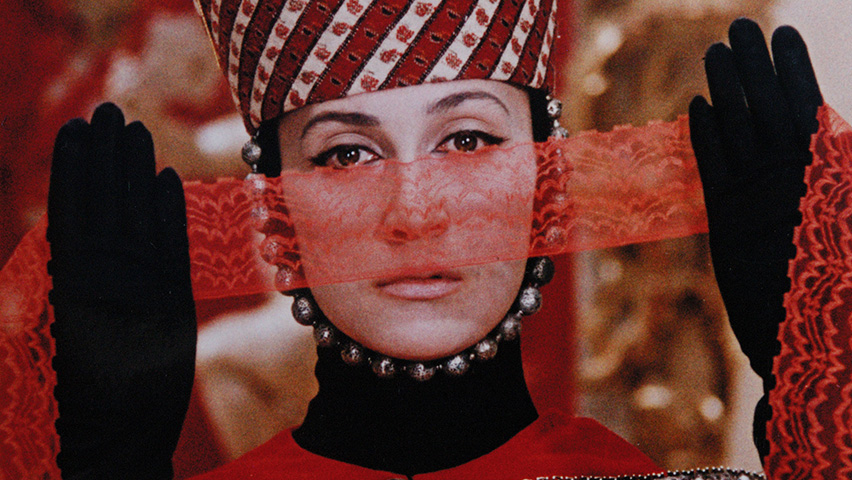
The Color of Pomegranates by Sergei Parajanov– the film that Martin Scorsese compared to ‘opening a door and walking into another dimension, where time has stopped and beauty has been unleashed’ – will be screened as part of the London Film Festival 2014 this week.
When Martin Scorsese introduced his Film Foundation’s newly restored version of The Colour of Pomegranates at the Toronto film festival in September he told the expectant audience they were going to witness images and visions “pretty much unlike anything in cinema history,” The Guardian writes.
The digital restoration, completed in conjunction with Cineteca di Bologna, comes as close as possible to the director’s original vision and it is this version, described by critic and Toronto festival programmer James Quandt as “a cinematic Holy Grail”, which will screen at the London film festival in October.
Four years after Sergei Parajanov completed what was then titled Sayat Nova – his dazzling film poem inspired by the life of the eponymous 18th-century poet and musician – he was arrested by the Soviet authorities and spent more than three years in jail while suffering the indignity of seeing his film re-edited and given a limited release.
The Colour of Pomegranates, even in a re-edited form designed to try and make it more accessible, was refused overseas distribution with pirate copies only emerging abroad once the director was in jail and the bid to free him from his prison had become a cause for the international film community.
The Colour of Pomegranates can be a bewildering experience for western viewers or, indeed, for anyone not steeped in the history of the region in which it is set, but the magnitude of Parajanov’s cinematic achievement is clear to see. At the Toronto screening, Scorsese said: “I didn’t know any more about Sayat Nova at the end of the picture than I knew at the beginning, but instead what Parajanov did was he opened a door into a timeless cinematic experience.”








